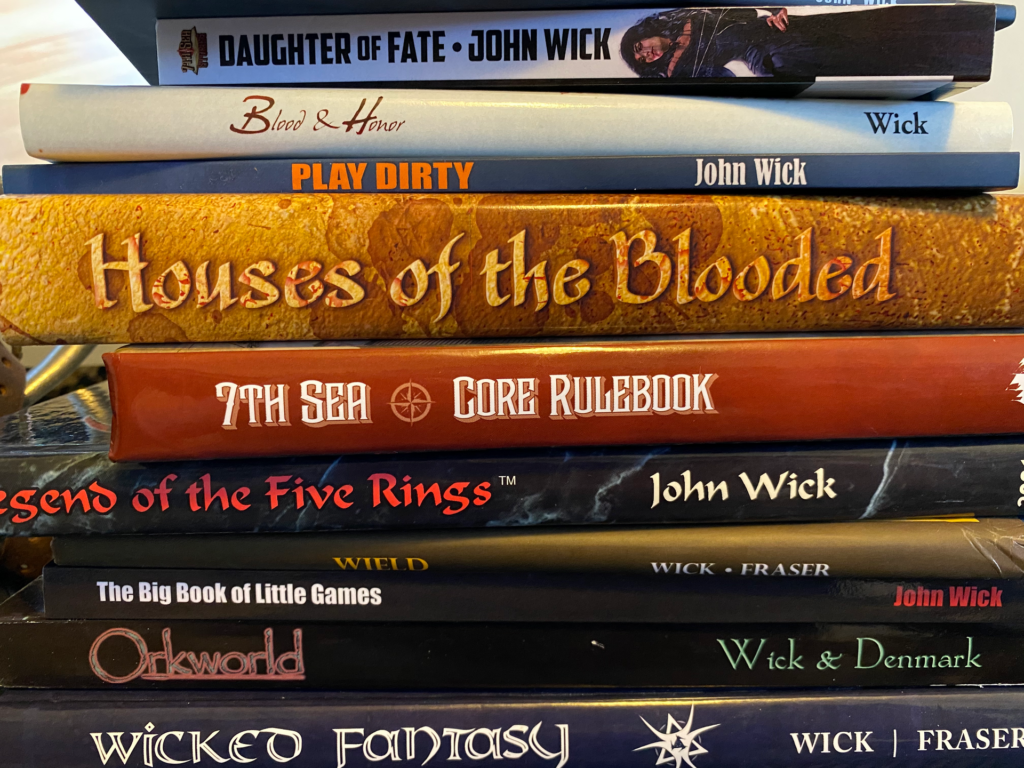-
#trekforthefirsttime
Last week, I got sick. The kind of sick that sits on your chest and won’t let you breathe. The kind of sick that gets into your head and screams until your skull starts to crack. The kind of sick that you have to fight all day long, so by the late afternoon, the only…
-
D& Acquisition
Game designer John Wick, via his company John Wick Presents, has acquired the rights to the Dungeons & half of the Dungeons & Dragons franchise. “The 7th Sea Kickstarter was so successful, we had enough cash to do something important.” While the dragons are still out of reach, Wick is excited for the possibility of…
-
Distractions and Mans
So, I’ve tried to write three different blog posts. I’m supposed to do this twice a week, and this time, it just isn’t happening. Why? Well, this little gif pretty much lays out why. Writing is different for everyone—which is why there are so many different writing advice books—but one thing seems to be true…
-
Let It Go
I do a lot of game design seminars and I always meet “The Guy.” He always says the same thing, too. He raises his hand and says, “I’ve been designing a roleplaying game for twenty years now…” I stop him. Right there. I know exactly where this is going and I need to stop it…
-
We Are the Heroes of the Stories We Tell
I’m starting my own church. A church of one. This is what I believe. I. I believe in a reality that is very close to our own, a reality that sometimes touches our own, and sometimes even crosses over. This reality has been called many things by many people. It has been called the Astral…
-
THE TOWN: A Twin Peaks-Inspired RPG
THE TOWN Diane, It is 3:50 AM. I just woke from a dream with a sharp pain on my back. When I looked in the bathroom mirror, I saw it was a mole on my back that has grown dangerous large and swollen. But the dream showed me a secret. A secret I must share…
-
Get out and Vote!
Hey everybody! Today in America is election day! And in case you felt like staying at home, I suggest you take a look through history—even fake history like 7th Sea—and remember what Americans fought and died for. Your right to choose our government. I know the choices aren’t the best, but as someone who’s been…
-
A Candid Post About Depression
I’m supposed to write a blog post every week. Hannah, my Marketing Director, tells me so. And as I type those words, I have to ask myself, “When the hell did I get a Marketing Director?” And then, I remember… oh, yeah. 7th Sea. However, for the last five days, I’ve been in a deep…
-
Evil Thrives on Silence
Just yesterday, Bob Dylan won the Nobel Prize for Literature. Since hearing the news, his words have been dancing around in my head, demanding attention. I was never a big Dylan fan when I was younger. I didn’t like his voice, felt his guitar playing was… adequate… and put my attention to musicians who were…
-
UnReview: Luke Cage
I just finished watching the first four episodes of Luke Cage and after the first, I came to a realization. I could not write this show. The other two Marvel shows, I could have taken a swing at. I could write about Daredevil, I could have written about Jessica Jones. Whether or not the shows…
